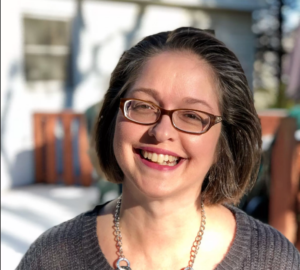What would you give your life for?
Your kids? Your spouse? Your family?
Would you give your life for people you don’t know? People forced into prostitution in Bangalore, or unborn babies?
Would you give your life for the Church? Paul tells us Jesus gave his life for just this thing. Jesus gave his life for the Church.
More precisely, Jesus gave his life for people, who are the flesh and blood of the Church. I can’t even begin to comprehend the motives of God. Why does he care about people who are imperfect, selfish, unkind, unthinking, unloving? How was it that Moses and God could find such frustration in fickle people, yet be fully on their side at the end of each day? That reveals a depth of patience and a quality of love I can’t fathom.
God has a vested interest in us and the cross is proof. Further, he has partnered with us through the Holy Spirit. He offers a brand of intimacy and belonging that nothing else can approach. God has literally given his life to us.
But I’m a pastor. Subtly and not so subtly, pastors are taught to detach from personal relationships for the sake of building the Body of Christ. We are taught the psychology of being in community without getting tangled up in it. Books upon books indoctrinate us in the art of boundary-making as a mark of good leadership. And maybe this is especially true of itinerating pastors.
Jesus, meanwhile, says things like, “Greater love has no one than this, that one lay down his life for his friends” (John 15:13). Jesus is teaching me something radically different here. Jesus is teaching me that it is not just okay but a mark of holiness to discover the place of friendship not beyond but in the midst of ministry. Not beyond but in the midst of community.
When Jesus says, “I no longer call you servants, I call you friends,” he is teaching something radical about community. Find your friends here, he says. And when Jesus says (John 15:16), “You didn’t choose me, but I chose you,” he is challenging us to do something radical. We rejected him, but he still chooses us.
Love is a choice.
Which means I am now free to love even in the face of rejection. We are free to give our hearts to others, to community, because Jesus has chosen to live out his character in us.
In conversations with a few single friends, I have discovered there is a hunger out there for genuine friendships that don’t suffer from the fear of sexual expectation. It seems that our culture has us all so afraid of each other that we default to a defensive posture, keeping ourselves at a distance, unwilling to develop healthy, vulnerable relationships.
This doesn’t have to be.
Jesus had friends … not just disciples, but friends. John 11:5 says, “Jesus loved Martha and her sister and Lazarus.” This is the one personal friendship the Bible mentions for Jesus and it includes women.
I would be lost without precious friends — male and female — who add such value to my life. Being a pastor, most of my colleagues are men (and since Steve is a teacher, most of his colleagues are women). We don’t shy away from friendship with the people God has placed in our lives. We know who we are and are able to act as responsible adults when we are with others. Our lives are enriched by this choice. Here are a few things that make our friendships work:
Transparency — Any healthy friendship requires a lack of anything resembling secrecy, especially when it is with a friend of another gender. There should be no shadow of dishonesty, nor of politics. Too often, pastors erect political boundaries that keep us from real conversations and real influence. We’ve chosen correctness over kindness. Who says we can’t be genuinely in relationship with the people in our communities? We can decide to do this without abusing relationships, simply by being honest with people about who we are. And we can do so maturely without violating the standards of holiness.
Boundaries — I control my own boundaries. I get to choose the nature of my relationships. I am not a victim of other people’s feelings nor of my own, and my reactions are a choice. All of us who follow Jesus should aspire to that level of maturity. “Grow up in every way,” Paul counseled. Surely he meant it for our relationships, too. This means I can decide how and when I can be present to others and it means I can choose to love others without fear of their responses because I know who I am.
Hear me clearly: I am responsible for my own brain, and my friends are responsible for theirs. When we practice healthy boundaries and take responsibility for our side of the fence, we open ourselves up to the blessing of good community life.
Accountability — Friends hold each other accountable for their actions. They respect and accept each other, yet they are not afraid to confront each other when the need arises. Friends depend on one another for support in times of crisis, whether emotional or material. Friendship is a relationship of trust, confidence, and intimacy. It is not southern kindness, but something deeper — a willingness to speak truth in love.
Learning to live vulnerably and maturely in relationship with others — learning to be a real friend — is a gift on the way to real life and it is the work of the Church for which Jesus died.








